Our project managers select the right team members, utilize productive tools, and leverage years of collective experience to make sure every project phase goes smoothly and delivers a predictable, cost-effective outcome.
Because the priority for every manufacturing project is rapid progress, many are started with inadequate planning. PEC never begins with assumptions or predetermined solutions. We listen to your needs, understand your production environment, challenges, and goals, and then plan a strategy for success.

We’re keenly aware of the impact production disruptions have on profitability, so our team of Lean Six Sigma-trained project managers design a strategic plan that integrates into your normal business flow to minimize risks of disruptions and downtime during the project.
We create a cross-functional focus and communicate continuously to ensure strong commitment, a smoother implementation, and sustainable success.
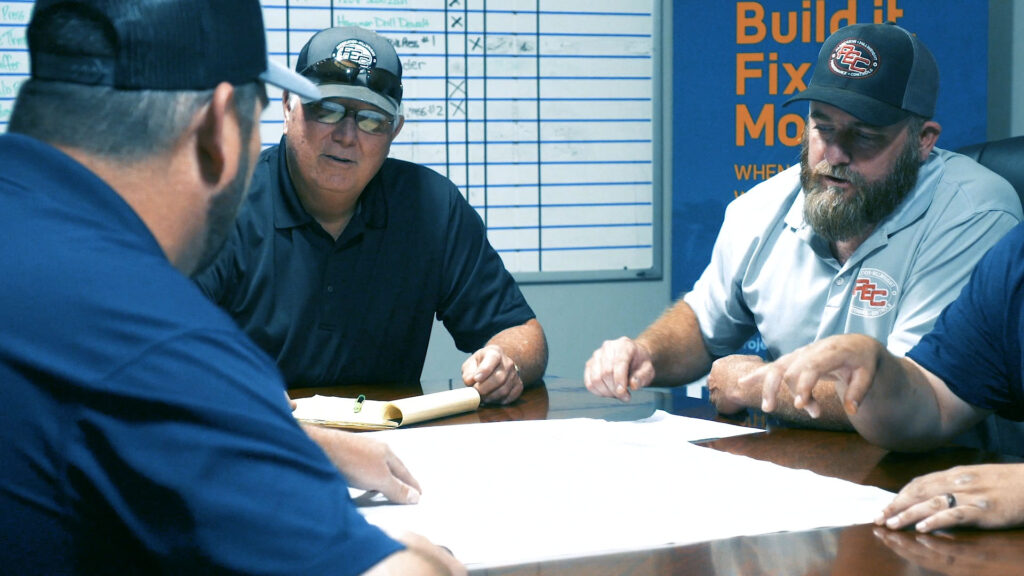
We all understand the importance of getting the project done as quickly as possible, and we’re the best in the business when it comes to delivering on time and within budget — but safety is always our first priority. We invest in the best people and practices to continuously improve it.
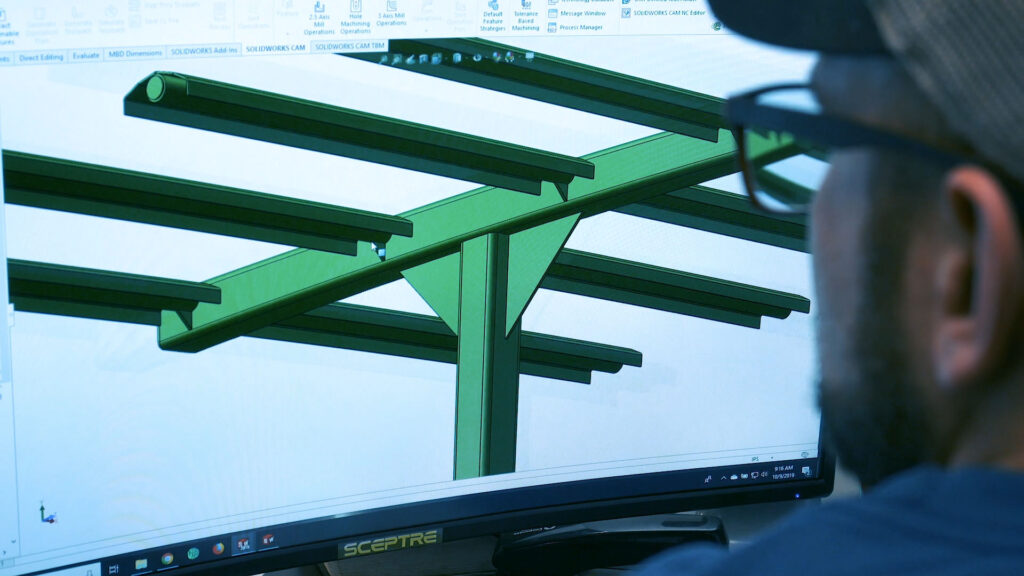
When you have a construction task on hand, especially in the industrial sector, coordinating every facet can become a daunting challenge. There’s the need to synchronize both internal teams, like design and engineering, and external teams such as subcontractors and suppliers.
Ordering the right materials, ensuring they’re delivered on time, and maintaining their quality is a task in itself. Plus, there’s the ever-present challenge of managing a budget, ensuring costs are kept in check without compromising on the quality or timeline of the project.
This is where industrial construction management comes into play, streamlining the entire process and ensuring that each step is executed seamlessly and efficiently.
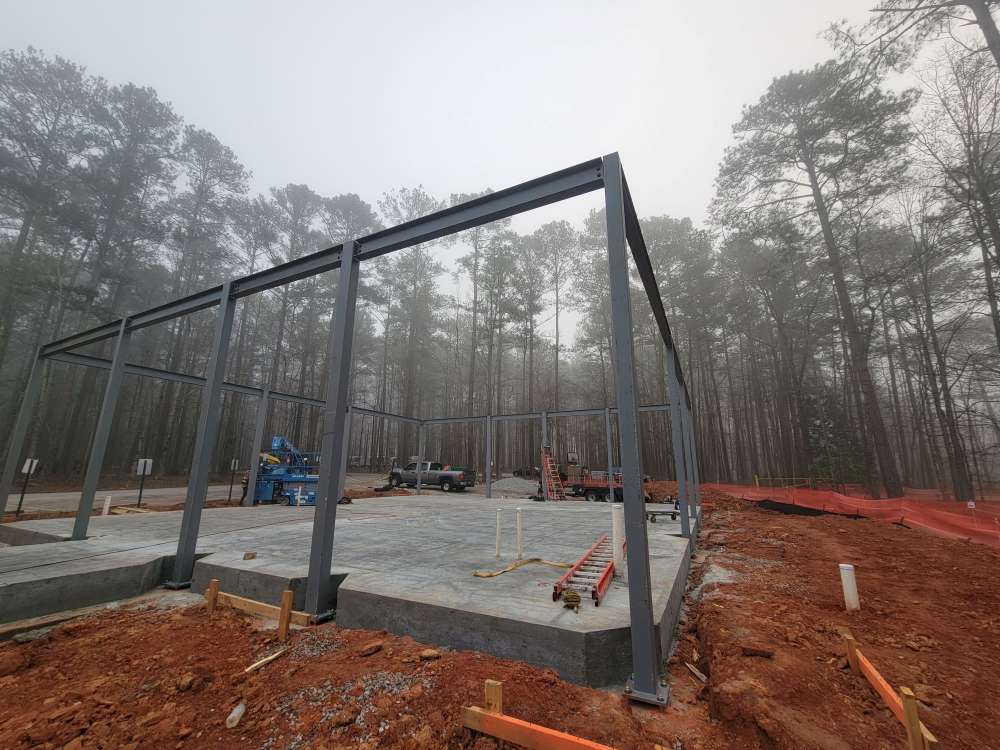
Coordinating a build can be time-consuming and cause additional pressure on your workforce. Industrial construction management takes the pressure off your teams by coming in as a neutral outsider. Your teams can then focus on their work, and the construction manager deals with the plan, coordination, and implementation timeline. Some of the benefits of construction management include:
1
While it might seem counterintuitive to cover the average salary of a project manager, they’re worth the investment. The potential cost-saving spans across all the project roles, from effective resource management to the implementation of legal processes.
Project managers can also play an active role in determining the budget, as well as ensuring that the project doesn’t exceed the budget. Measures are put in place to curb overspending, and there should be some wiggle room in case of complications or unforeseen events, such as damaged pipes or delays in permits and licenses.
2
Having someone with the necessary skills and expertise and who knows when a construction project is not performing up to standard is valuable. For instance, experienced project managers will know when teams are scrimping on quality or if parts of the construction process are done incorrectly.
Suppose a project manager spots a problem with costly construction elements in your real estate project, such as brick-laying, drywalling, and even cement pouring, and they catch it early enough. In that case, it can have a marked effect on the project outcome. This oversight role also needs to coordinate the teams to ensure the project stays on track. Additionally, the project manager will provide progress reports to keep the relevant business units up to speed.
3
A construction audit is an integral function of a project manager as it showcases the progress and possible delays in the process. These audits also include quality and compliance checks to ensure that the construction site can avoid legal issues or claims.
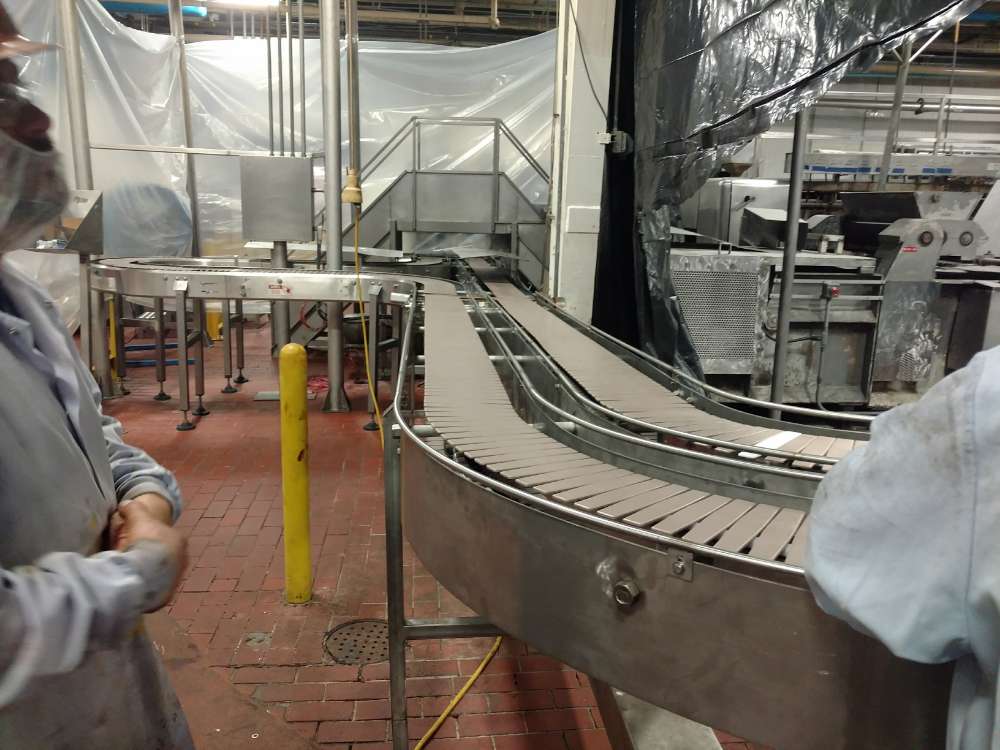
Any construction project, no matter how small, requires coordination between a number of different teams. For example, the project manager must keep track of the project budget, coordinate project deadlines, order project materials, and ensure that safety guidelines are being followed.
In addition, the project manager must also prepare project status reports and communicate with the client on a regular basis. With so many moving parts and varying project timelines, it’s easy to see how things can quickly become overwhelming. That’s where our Project Manager services come in. We can help to take care of the details so that you can focus on the big picture.
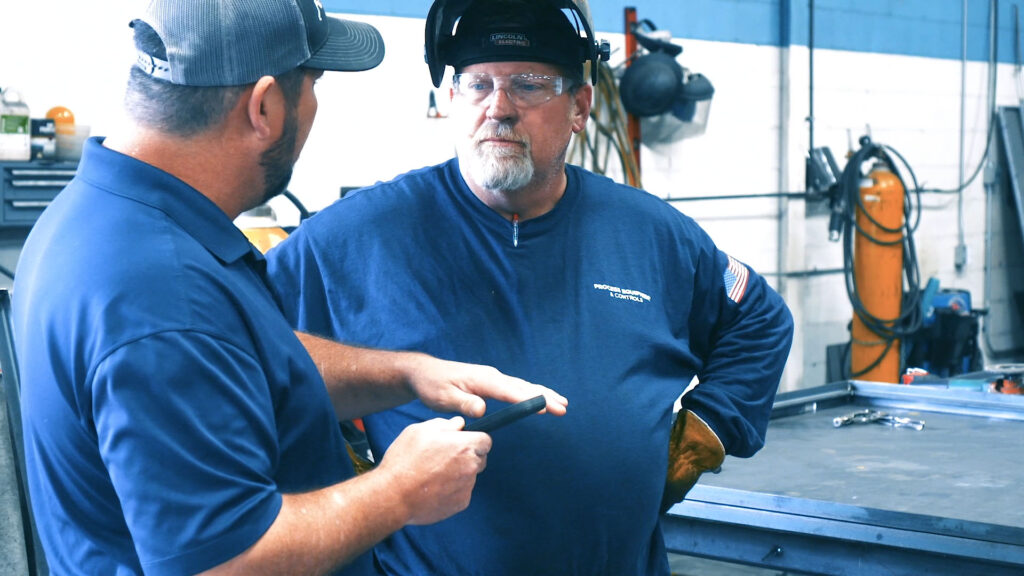
A manufacturing project manager is responsible for overseeing manufacturing operations and ensuring that they are meeting project plans and deadlines. In order to do this, they need to be able to understand the manufacturing process and have a good working knowledge of the products being produced.
They also need to be able to communicate effectively with the team of managers manufacturing the product. The manufacturing project manager is ultimately responsible for the success or failure of the manufacturing process.
In order to be successful, they need to have a strong understanding of manufacturing operations and be able to manage the manufacturing process effectively. Below, we will go into more detail about the functions our expert project and product managers will perform.
1
Before a manufacturing project is implemented, it’s important to know what the project will entail. The project manager kicks off this planning phase to determine whether the project scope is achievable within that business unit and the resources required to see it through.
This part of the process will also detail additional equipment and specialized tooling or automation that might be required to manufacture the product. Additional functions during this phase include:
2
The timing of the project determines the outcome, and in manufacturing, this means ensuring all the right components are in place to achieve this. Project management will involve scheduling teams to implement and fulfill each step of the plan.
During this leg of the operations, a project manager will need to table the amount of time it will take to implement each step. They will also require the exact timeframe for each deliverable to take place and how this will affect the client’s expectations and business needs.
For instance, if tool-making is part of the process, the project manager should know how much time the artisan will need to make that tool and what supplies they require to complete the task. If there is a delay in this section of the process, it might slow down the entire project.
3
Project managers need to have years of experience to ask the right questions so they can formulate a manufacturing plan. This plan details all the important components of the project, such as:
4
Management services also include overseeing various teams to make sure they meet the demands of the project. This includes the engineers, technicians, and more. They ensure that all necessary tasks are completed on time and up to the required standard.
Additionally, they work with vendors to ensure that materials are delivered in a timely manner, as well as coordinate any repairs or replacements needed for equipment. Management services also involve making decisions about purchasing new equipment and obtaining permits from local authorities if necessary.

At PEC, we have a skilled team of construction and manufacturing project managers well-versed in their respective industries. These professionals can help you meet the objectives of your projects, such as managing timelines and applying effective resource management. Learn more by reaching out to our team of experienced experts.
Beginning with our careful consideration of your production demands and plant operation schedules, to our intentional allocation of resources. We will dismantle and reassemble a single piece of equipment or an entire production line, even whole industrial plant relocations.
No job is too small or large, and each receives our full attention to complete your project on time and within budget. There’s no better time than right now to talk to us about plant maintenance and mechanical services that can make your job easier and improve productivity.
Diverse Industries, One Trusted Partner
Safety means more than compliance; it’s our covenant with you.







Whether you’re coordinating your next project or proactively planning your plant maintenance, there’s no better time than right now to contact us.